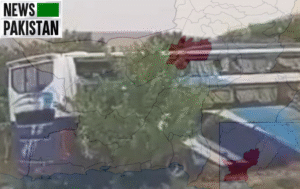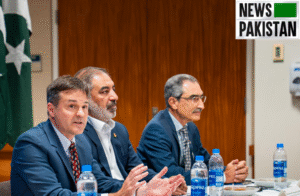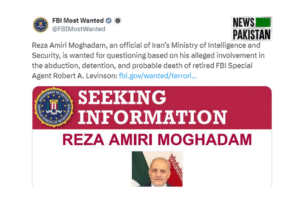MANHATTAN (UNITED NATIONS): The UN General Assembly Friday (15th March. 2024) adopted a Pakistani resolution, by a big majority, that calls for, among other elements, concerted action to fight ongoing violence against Muslims and requests the UN Secretary-General to appoint a special envoy to combat Islamophobia.
Prior to adopting the new resolution, entitled: ‘Measures to Combat Islamophobia’, by a vote of 113 in favour to none against, with 44 abstentions, the 193-member Assembly rejected two amendments proposed by a group of European nations. India, along with most of European states, abstained on the resolution.
The proposals would have replaced key language in the resolution, including calling for a focal point instead of a UN special envoy and removing references to the desecration of the holy Quran.
The UN created the International Day through a resolution adopted following attacks on two mosques Christchurch, New Zealand, that left 51 people dead on this day in 2019.
Two years ago, the General Assembly declared March 15 as the International Day to Combat Islamophobia under the terms of a resolution, also presented by Pakistan, with the sponsorship of the OIC and other Like-minded Member States.
Introducing the resolution, Ambassador Munir Akram, permanent representative of Pakistan to the UN, said despite the resolution and other actions as well as efforts by leaders promoting inter-religious and inter-communal harmony, the incidents of Islamophobia – of discrimination, prejudice and violence against Muslims – have risen exponentially both at the societal and State levels.
“These are manifested by the despicable acts of desecration of the Holy Quran with seven such incidents recorded last year alone,” he said.
“The lynching of Muslims by ‘cow vigilantes’: They are manifested by the widespread hate speech against Muslims, online and offline, in discrimination in education and employment.
“In attacks on women wearing the hijab. In the vandalization and destruction of mosques and other holy sites. In racial and religious profiling.
In the media outlets, spawning hate and prejudice and fueling hate and prejudice.
In the calls for genocide against Muslim minorities which go unpunished,”the Pakistani envoy added.
But most governments , he said, refuse to adopt laws and rules that would prevent and punish such acts of Islamophobia and incitement to violence on the spurious agenda of the right to “freedom of expression”.
“Yet,” he said, “this freedom ends if the Holocaust is denied. This freedom ends if you are demonstrating for Palestinian rights or protesting against Israel’s ‘plausible genocide’ in Gaza.”
“What is worse is that Islamophobia is not only tolerated, but propagated by a growing number of States and political leaders in the democracies.” Ambassador Akram said, noting the rise of right wing and fascist partners in recent elections confirms and consolidates this Islamophobic trend.
“This could lead to an inter-regional anti-Muslim ‘coalition of the killing.’ Without naming Prime Minister Narendra Modi, the Pakistani envoy said the Indian leader “gleefully consecrates a Hindu Temple on the ruins of a historic 500-year-old Mosque.”
“A citizenship law is implemented that would deny asylum to Muslims alone and is designed to render 200 million Muslims either stateless or second-class citizens, he said.
“A Home Minister (Amit Shah) castigates the police for being ‘too lenient’ against pro-Palestinian demonstrators opposing Israel’s brutal Gaza campaign.
“Immigration policies are designed to deliberately exclude Muslims. Hijab bans are officially imposed. The Muslim call to prayer is prohibited in some States and ridiculous rules have been promulgated to prevent so-called ‘love jihad’ in the ‘largest democracy’. Islamic names of cities are being replaced. The Islamic legacy is to be obliterated.”
He added, “The killing of over 30,000 Palestinians in Gaza mostly women and children and calls for genocide against them has been justified by describing them as ‘human animals’.
The same mindset has led to the foreign occupation and suppression of Muslims elsewhere and to the series of foreign interventions in Muslim countries.”
UN Secretary-General Antonio Guterres said “divisive rhetoric and misrepresentation are stigmatizing communities” and everyone must unite to combat intolerance, stereotypes and bias.
“Online hate speech is fueling real-life violence,” the UN chief said in a statement, emphasizing that digital platforms must moderate hateful content and protect users from harassment.
Institutional discrimination and other barriers are violating the human rights and dignity of Muslims, and much of this disturbing trend is part of a wider pattern of attacks against religious groups and vulnerable populations, also including Jewish people, minority Christian communities and others, he added.
“We must confront and root out bigotry in all its forms,” he declared. “Leaders must condemn inflammatory discourse and safeguard religious freedom.
“Together, let us commit to promoting mutual respect and understanding, foster social cohesion and build peaceful, just and inclusive societies for all.”
In Geneva, Volker Turk, UN High Commissioner for Human Rights (OHCHR), said all forms of religious hatred and intolerance are unacceptable.
“The message today is perhaps more urgent than ever: we are all well past the hour to restore peace, tolerance and respect,” he said.
“We know that fear breeds hate, ignorance and distrust of the other.”
“Islamophobia has stolen lives”, dehumanizing entire communities and sparking “torrents of hate speech, magnified by social media”, he said, citing multiple reports on “huge spikes” in Islamophobic incidents amid the current conflict in the Middle East, with a nearly 600 per cent increase in some countries in North America and Europe.
States must record such incidents and urgently step up their efforts to combat intolerance against people based on religion or belief using the many available tools at their disposal, including the OHCHR guide to developing anti-discrimination legislation.
“Faith literacy – in other words, knowledge and understanding about the values of each religion and belief – is also crucial,” Turk said, urging States to include it as part of comprehensive training initiatives on combating religious hatred for law enforcement officers and the judiciary, faith-based actors, teachers and media professionals.
Also in Geneva, Nassima Baghli, Permanent Observer of the OIC, hosted a commemorative event on Friday, saying that “Islamophobia is on the rise following the Israeli aggression on Gaza”.
Citing recent anti-Muslim incidents, she pointed to cases several months ago of the desecration of the holy Quran.
“Discrimination and stereotypes based on religion or belief are doing a lot of harm as they dehumanize people and prevent them from enjoying their rights,” Ms. Baghli said.
“We need to combat these scourges with great resolve with all the tools at our disposal,” she said. “Our common goal is to promote mutual understanding and respect for all.”
As millions around the world start observing the holy month of Ramadan, sadly in Gaza and across the region, many will mark this month facing conflict, displacement and fear”, she said.
Newspakistan.tv/APP/UN









